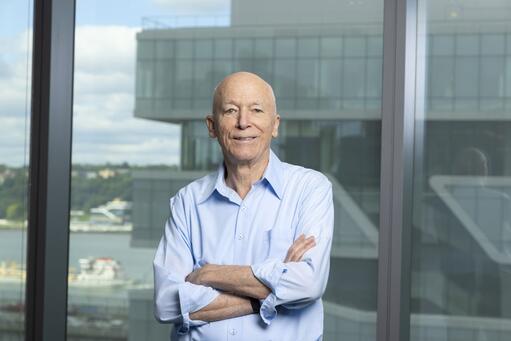Adam Smith, the founder of modern economics, argued that the pursuit of private interests — profits — will invariably promote the common good. That may be true in some situations, but obviously not always. Just as banks' pursuit of profit led to the 2008 financial crisis, it was Purdue and other pharmaceutical companies' greed that produced the opioid crisis, and Texaco's support of the Franco regime that helped the fascists triumph in the Spanish Civil War.
This litany of perfidy could easily be extended. But among the worst abuses committed by greedy corporations today is childhood slavery. Chocolate lovers around the world may not know it, but some of their guilty pleasures may have been produced by child slaves.
Nestlé, Cargill, and other food companies facing such allegations have avoided answering for them in open court. Because they or their subsidiaries are headquartered in the United States, they have been able to argue that they are not accountable for misdeeds committed in faraway Africa. They do this knowing full well that there is no effective legal system in the countries where children are being exploited.
Moreover, even if a legal judgment was to come down against these companies abroad, they would pay little. They would simply move their operations elsewhere, and it would be hard, if not impossible, for a small, poor country to enforce any judgment rendered.
These issues were all in play in a case before the US Supreme Court this year. In Nestle USA, Inc. v. John Doe I, et al./Cargill, Inc. v. John Doe I, et al., the court ruled against six Malians who were seeking compensation from Nestlé and Cargill for their suffering as former child slaves. Rather than ruling on the merits of the case, the court issued an 8-1 decision on the narrower legal question of whether an American firm can be held accountable for injuries done to others abroad. The US Alien Tort Statute, the court held, cannot be applied “extraterritorially,” because that would amount to an extension of US law beyond US boundaries.
Of course, the US operates extraterritorially all the time, such as when it punishes foreign companies for violating its sanctions against Iran. The difference in this case was that it was American companies (or those working on their behalf) who were being called to account. By ruling in their favor, the court avoided the question of how companies engaged in unlawful behavior abroad ever could be held accountable. In what court would they be tried if not a US one?
In the absence of any accountability, US corporations have little incentive to change their behavior abroad. If they can get our favorite chocolates onto store shelves at a lower price by using suppliers who exploit child labor, those without moral compunctions — a category that evidently includes these companies — will adhere strictly to the logic of market competition and do so.
So, who will protect the children? At stake in this case was one of America's core values: human rights. It is clearly in America's interests to show the rest of the world that its companies abide by its values, especially at a time when police brutality against African-Americans is in the international media spotlight.
Together with Oxfam, we submitted an amicus brief to the Supreme Court arguing that it is in America's economic interest to hold US firms accountable for wrongful conduct wherever it is committed. We believe that corporate social responsibility pays off in the long run — for consumers and companies alike — in countries that insist on it.
After all, countries and companies with good reputations can attract more capital and better workers than less ethical competitors can, and their products will appeal to an increasingly conscientious generation of consumers. Younger workers are especially sensitive to what their employers do and stand for. That is why many companies have taken a stand against voter-suppression laws and embraced targets to reduce greenhouse-gas emissions.
But far too many companies are still driven by short-term profits. While lawyers for Nestlé and Cargill were working diligently to spare them from accountability, both companies issued boilerplate statements condemning child slavery. But if that is where they stand, why didn't they want to lay out their case in court? Surely, their well-paid lawyers would be more than a match for the Malians' representatives. If the companies lost, it wouldn't be because they lacked adequate counsel.
How can we ensure that companies don't do abroad what they would never attempt to do at home? Globalization has forced this question onto the agenda as Western companies have expanded their reliance on poor countries with very limited legal frameworks. Extraterritoriality is not the issue. What matters most is that we end the race to the bottom. The US should be assuring the world that it and its companies stand for decency, without any double standards.
In the meantime, Cargill, Nestlé, and other companies that have allegedly been culpable in human-rights and environmental abuses abroad must be tried in the court of public opinion. Their untiring effort to evade accountability for their actions speaks volumes.
Joseph E. Stiglitz, a Chazen Institute Advisor and Nobel laureate in economics, is University Professor at Columbia University and a member of the Independent Commission for the Reform of International Corporate Taxation. Geoffrey Heal, a Chazen Senior Scholar, is Professor of Social Enterprise at Columbia Business School.
Copyright: Project Syndicate, 2021.


